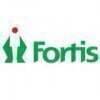Physiotherapist
40+ Physiotherapist Interview Questions and Answers

Q. What is the management protocol for frozen shoulder?
Management for frozen shoulder involves physical therapy, pain management, and sometimes surgery.
Physical therapy to improve range of motion and strength
Pain management through medication or injections
Surgery in severe cases where other treatments have failed
Patient education on proper shoulder use and exercises to prevent recurrence
Asked in Synergy Physiotherpy Clinic

Q. Do you have any ideas for basic treatments?
Basic treatments for physiotherapy include manual therapy, exercise therapy, and electrotherapy.
Manual therapy involves hands-on techniques to mobilize joints, reduce pain, and improve range of motion.
Exercise therapy includes stretching, strengthening, and conditioning exercises to improve function and prevent injury.
Electrotherapy uses electrical stimulation to reduce pain and promote healing.
Other basic treatments may include heat or cold therapy, massage, and ultrasound t...read more

Asked in Max Healthcare

Q. Choice of interest in Physiotherapy
I have always been passionate about helping others improve their physical well-being and quality of life through movement and exercise.
I have a strong interest in anatomy and physiology, and enjoy learning about how the body functions.
I find fulfillment in working closely with patients to create personalized treatment plans and seeing their progress over time.
I am motivated by the opportunity to make a positive impact on people's lives by helping them recover from injuries or...read more


Q. Modes of ventilator
Modes of ventilator include volume control, pressure control, and spontaneous modes.
Volume control mode delivers a set tidal volume with each breath
Pressure control mode delivers a set pressure with each breath
Spontaneous mode allows the patient to initiate and control their own breaths
Other modes include pressure support, synchronized intermittent mandatory ventilation (SIMV), and high-frequency oscillatory ventilation (HFOV)

Asked in Employment Express

Q. What are your future plans?
I aim to specialize in sports physiotherapy, enhance my skills, and contribute to community health initiatives.
Pursue a specialization in sports physiotherapy to work with athletes and enhance their performance.
Attend workshops and conferences to stay updated on the latest techniques and research in physiotherapy.
Engage in community health initiatives, such as free physiotherapy camps, to promote wellness and injury prevention.
Consider pursuing a doctoral degree in physiother...read more

Asked in Senco Gold

Q. Tell me about yourself.
I am a dedicated and compassionate physiotherapist with a strong background in rehabilitation and patient care.
I have a Bachelor's degree in Physiotherapy from XYZ University.
I have completed internships at ABC Hospital and DEF Clinic, where I gained hands-on experience in treating a variety of musculoskeletal conditions.
I am skilled in conducting assessments, developing treatment plans, and educating patients on exercises and self-care techniques.
I am passionate about helpin...read more
Physiotherapist Jobs




Asked in HCL Healthcare

Q. What is the difference between TENS and Ultrasound?
TENS and Ultrasound are both therapeutic modalities used in physiotherapy, but they operate through different mechanisms.
TENS (Transcutaneous Electrical Nerve Stimulation): Uses low-voltage electrical currents to relieve pain by stimulating nerves.
Ultrasound Therapy: Utilizes sound waves to promote tissue healing, reduce inflammation, and improve blood flow.
Mechanism of Action: TENS primarily works by blocking pain signals to the brain, while ultrasound promotes cellular repa...read more
Asked in Corporate Chanakya

Q. Why should I hire you?
I bring a unique blend of skills, experience, and passion for patient care that makes me an ideal candidate for this role.
Extensive experience in rehabilitation: I have worked with diverse patient populations, including athletes recovering from injuries.
Strong communication skills: I prioritize clear communication with patients to ensure they understand their treatment plans, leading to better outcomes.
Evidence-based practice: I stay updated with the latest research and techn...read more
Share interview questions and help millions of jobseekers 🌟



Q. Besics of physiotherapy
Physiotherapy involves using physical methods to help restore movement and function when someone is affected by injury, illness, or disability.
Involves assessing and treating musculoskeletal conditions
Uses techniques such as manual therapy, exercise prescription, and electrotherapy
Focuses on improving mobility, strength, and function
Tailored treatment plans based on individual needs
Commonly used for sports injuries, post-surgery rehabilitation, and chronic pain management
Asked in Sukhmani Hospital

Q. Effects of ultrasound
Ultrasound therapy can help reduce pain, inflammation, and muscle spasms, as well as promote tissue healing.
Ultrasound waves create deep heat that can increase blood flow and relax muscles.
It can help break down scar tissue and improve flexibility.
Ultrasound therapy is commonly used in physiotherapy for conditions like tendonitis, bursitis, and muscle strains.
It is a non-invasive treatment that is generally well-tolerated by patients.
The effects of ultrasound therapy can vary...read more

Asked in MagicBricks

Q. What are your skills?
I possess strong clinical skills, effective communication, and a compassionate approach to patient care in physiotherapy.
Clinical Assessment: Proficient in evaluating patients' physical conditions through detailed assessments, such as range of motion tests.
Treatment Planning: Skilled in developing personalized treatment plans, incorporating modalities like manual therapy and exercise prescription.
Patient Education: Effective in educating patients about their conditions and th...read more

Asked in ReLiva Physiotherapy & Rehab

Q. What is the treatment for upper cross syndrome?
Upper cross syndrome treatment focuses on correcting muscle imbalances through exercises and postural adjustments.
Strengthening exercises for weak muscles: Focus on deep neck flexors and lower trapezius.
Stretching tight muscles: Incorporate stretches for the pectorals and upper trapezius.
Postural training: Encourage proper ergonomics during daily activities and at workstations.
Manual therapy: Techniques like massage or mobilization can help alleviate tension in tight muscles....read more
Interview Questions of Similar Designations
Interview Experiences of Popular Companies








Reviews
Interviews
Salaries
Users


















